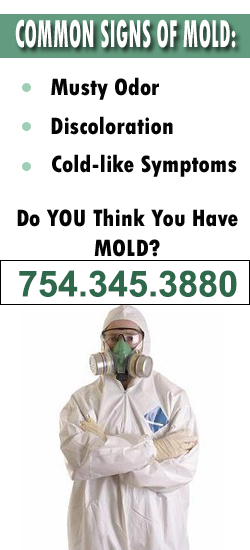Understanding Black Mold and Why It Grows on Drywall
Every home has experienced a mold infestation, however small it may be, mostly in the bathroom and basement. Given the perfect conditions, mold spores can expand into larger colonies within a few weeks, wreaking havoc in your home. One thing about black mold is it never goes unnoticed as its dark color is conspicuous yet unpleasant to look at.
The fungus needs food, humidity, and oxygen to flourish and is commonly found in cellulose-based products such as drywall. Drywall black mold is deemed possibly hazardous because it can significantly impact your health and the structural stability of your residence. Since drywall has the perfect conditions required by mold to thrive, it can harbor thousands of colonies, leading to rapid growth. If not handled sooner, the mold can cause a lot of harm to your drywall and might even necessitate a complete wall overhaul.
How Dry Wall Grows
Based on the permeability of the drywall, black mold can grow within a few days. Naturally, Porous surfaces will cause moisture from the air to settle on them, forming an ideal habitat for mold growth. However, this does not mean that the mold will not grow on nonporous surfaces. The only difference is that nonporous surfaces are simpler to deal with when removing the mold and might not reoccur after extermination.
Due to the porosity of drywall, it is more vulnerable to black mold. The roots of the mold will often hide inside porous surfaces, as well as spores. And as long as the roots and spores are inside the drywall, they will continue spreading. This means that drywall mold needs to be handled carefully, preferably by experts, to prevent further spreading of spores.
Since mold needs food to grow, it feeds on the wood particles in drywall. Due to its porous structure, it is thought to be an ideal environment for unhindered mold growth. When water sips through the softwood particles, it can get to other parts of the drywall without a hustle. Additionally, if pipes are running through your walls and are leaked, the water could get to your drywall and cause mold growth.
Is Drywall Mold Hazardous?
Anything that can cause harm to property or health is considered hazardous. Drywall black mold is a very destructive microorganism and harmful to your health. The fact that it can grow rapidly on the drywall makes it even more hazardous. At the same time, severe health implications of exposure to drywall black mold are not unheard of. While some people think that black mold cannot impact their health negatively, experts believe prolonged exposure can cause health problems.
Some of the symptoms you may experience include;
-
Nasal congestion
-
Itchy skin
-
Eye redness
-
Watery eyes
-
Blurry vision
-
Sore throat
-
Sneezing
-
Wheezing
-
Asthma attacks
If these symptoms persist after exposure or you experience worse symptoms like nose bleeds and difficulty breathing, it means your time to see a doctor has come. While sometimes the symptoms might not be purely caused by mold exposure, it is best to get a clarification on the matter.
If you discover black mold in your Florida home, condo or business, please contact the Ft Lauderdale Mold Pros for certified black mold remediation services. We offer professional mold remediation for small and large projects.





